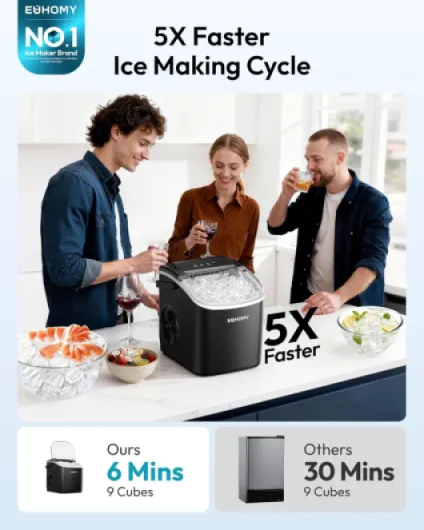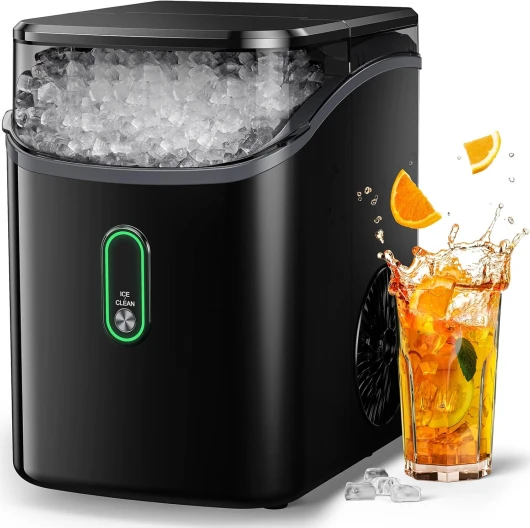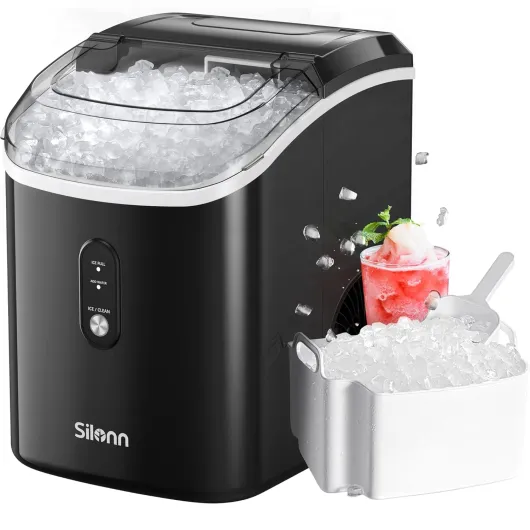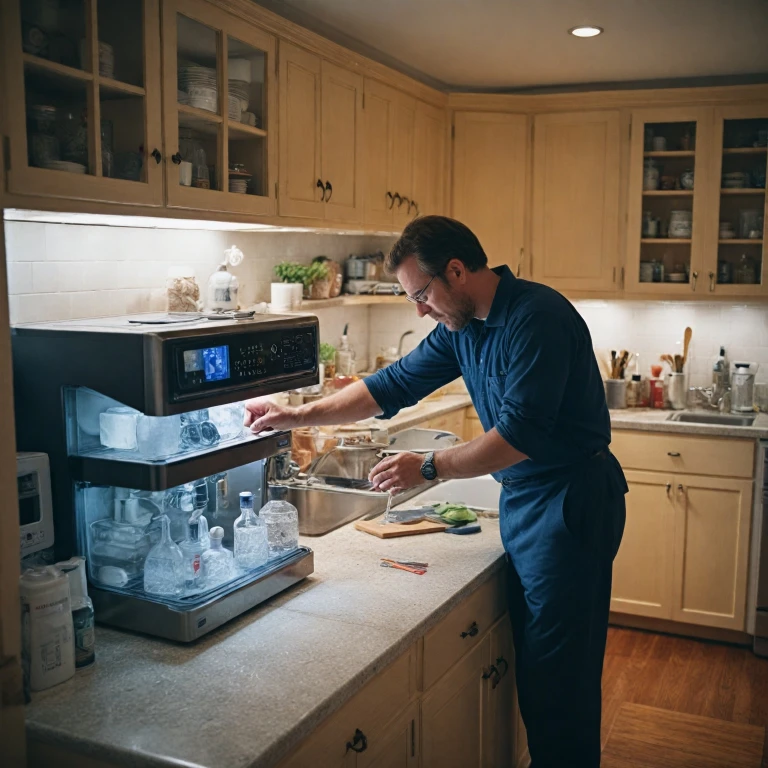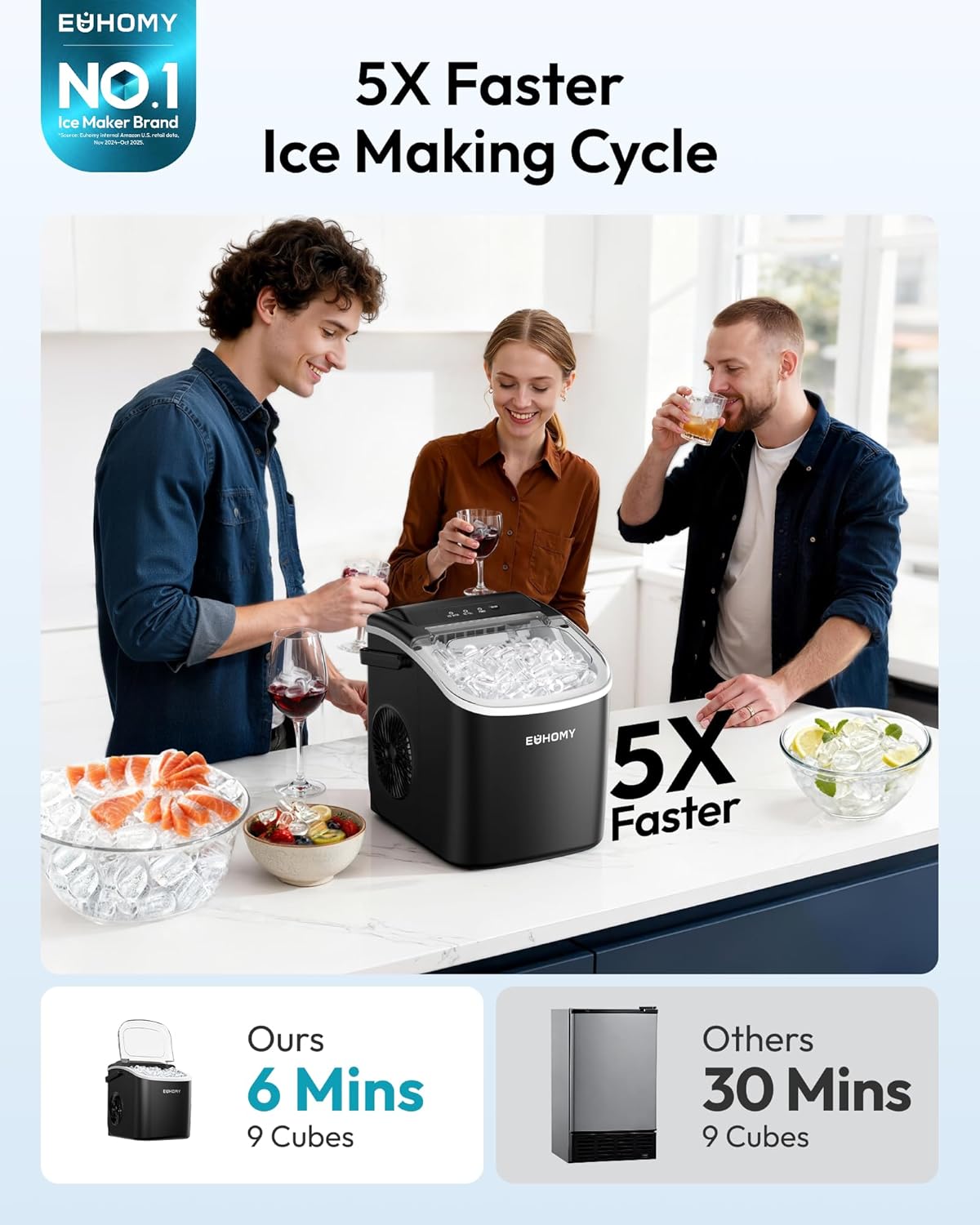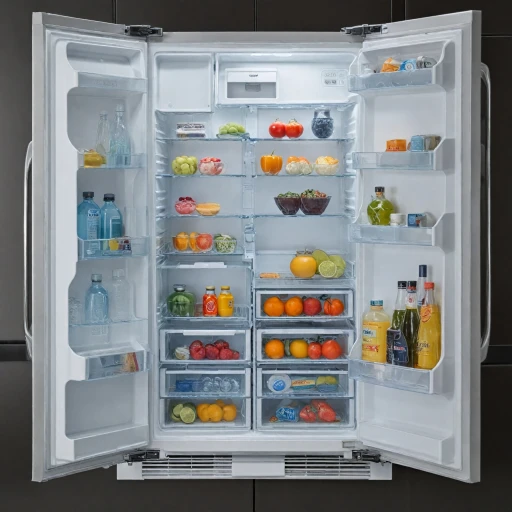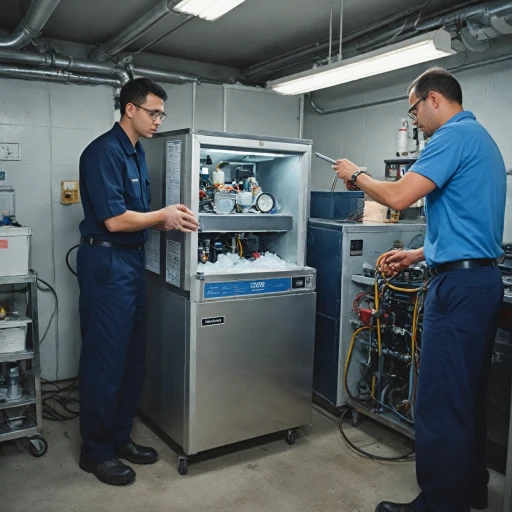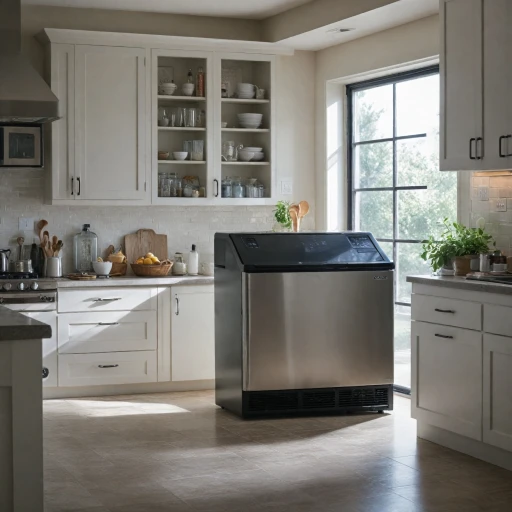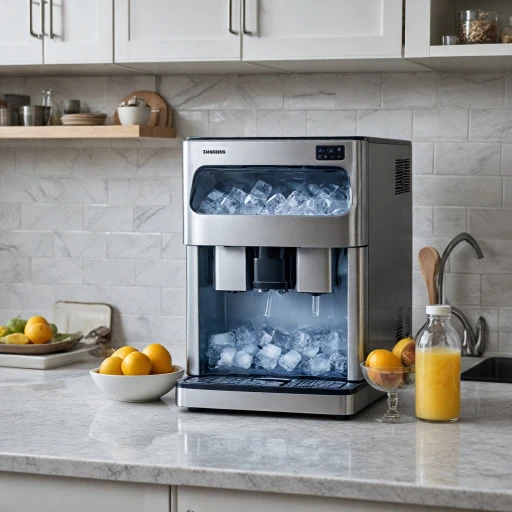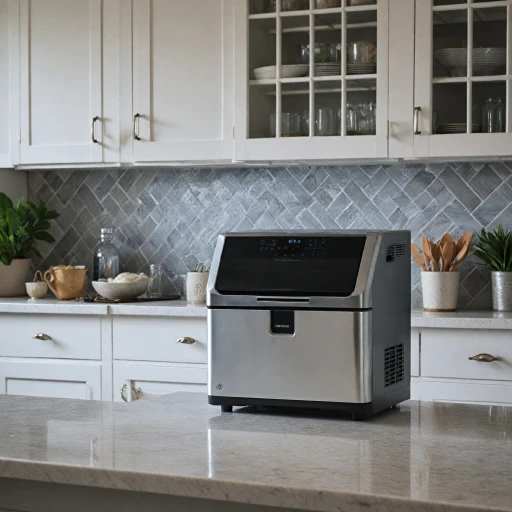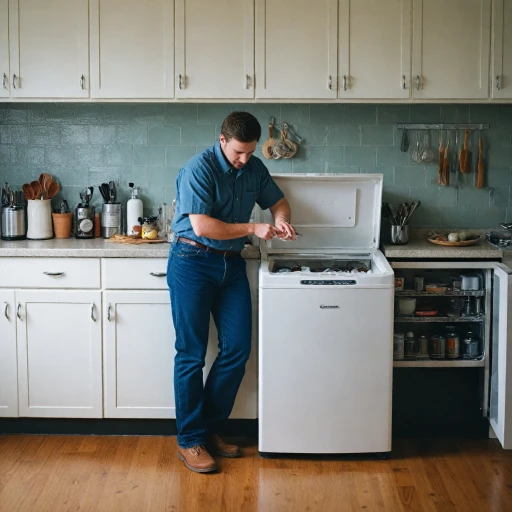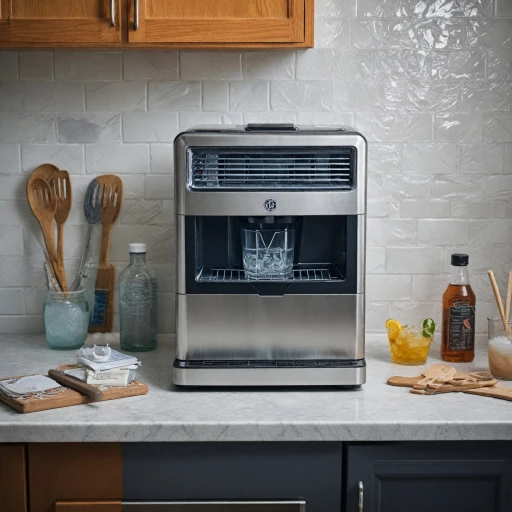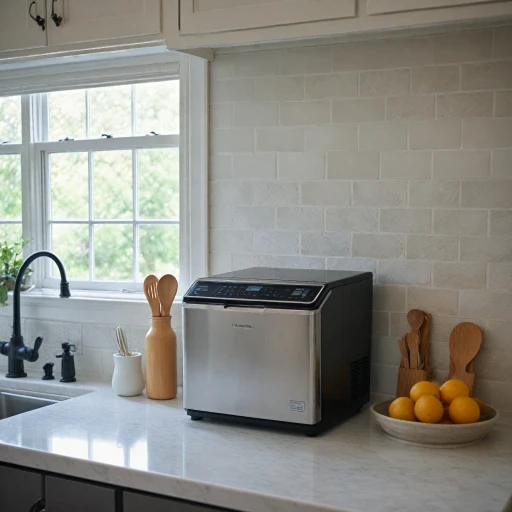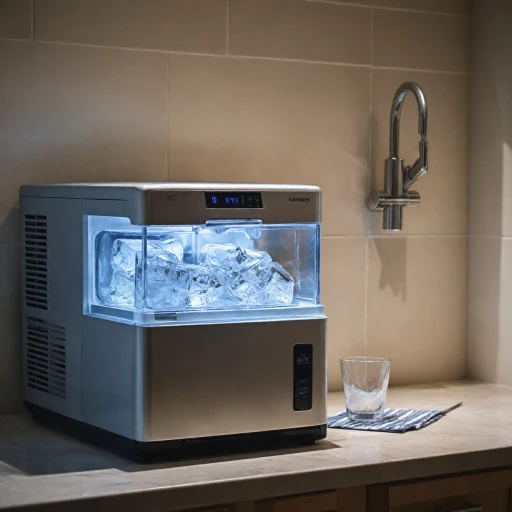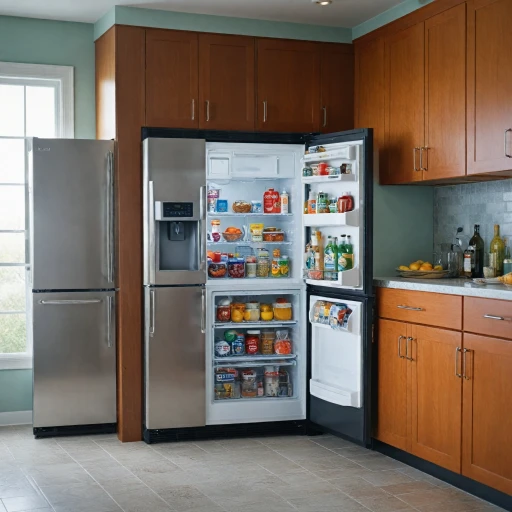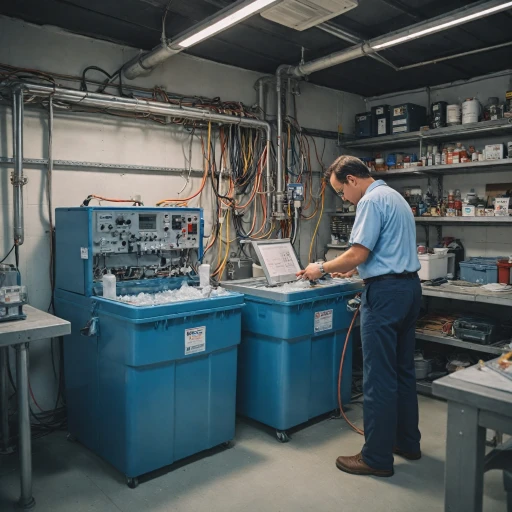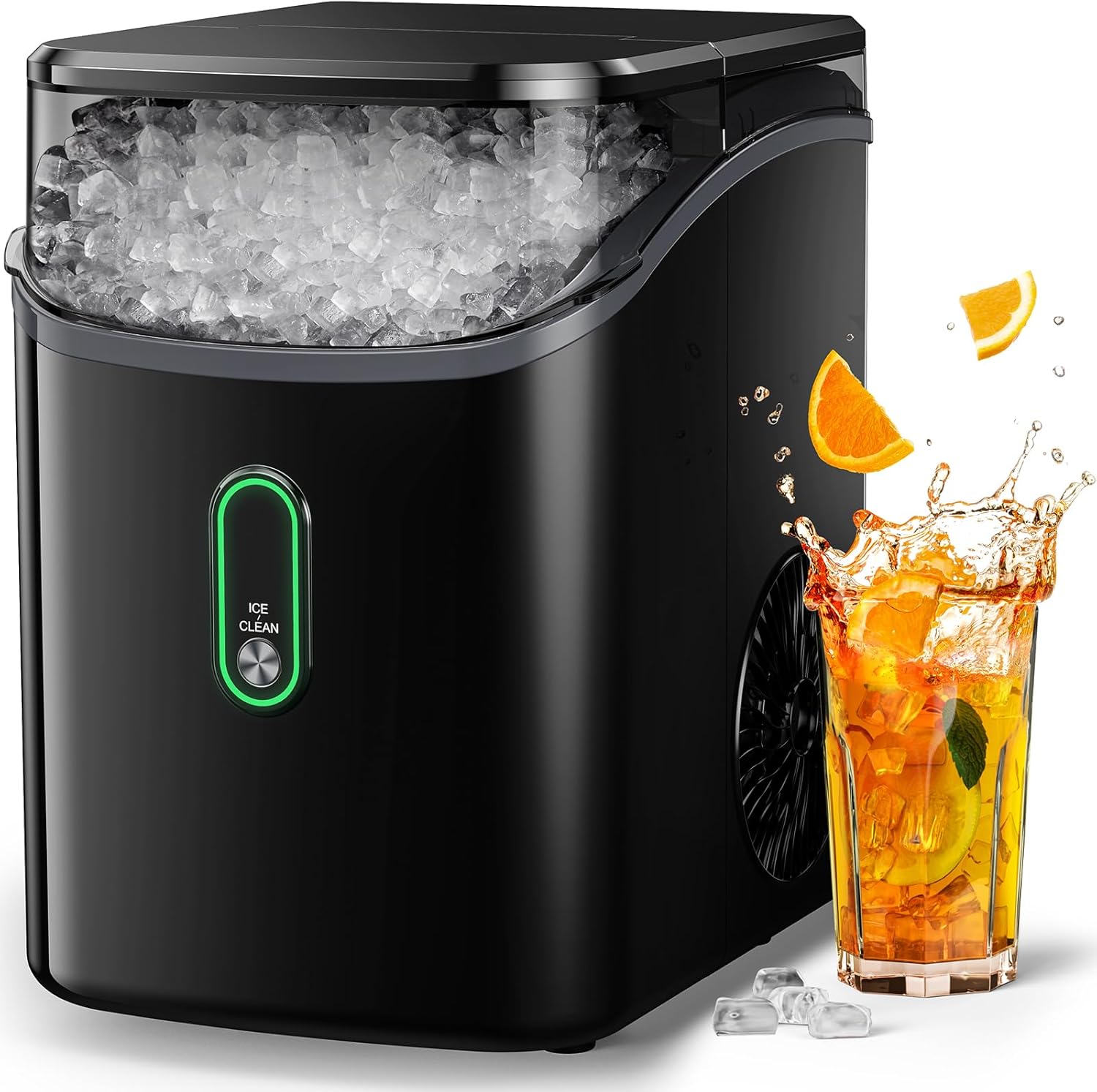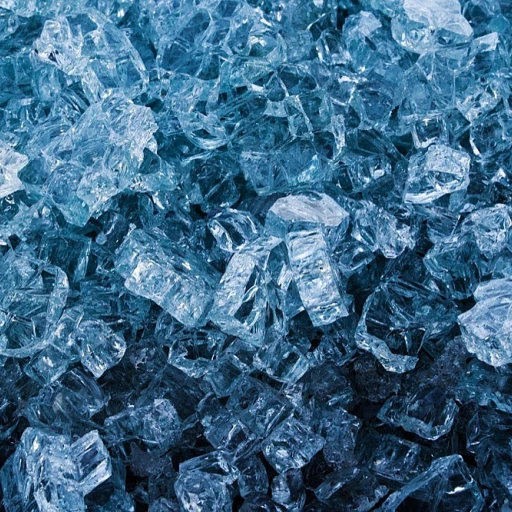
Understanding Common Ice Maker Issues
Identifying Routine Problems with Ice Makers
For many, ice makers are a crucial component of both residential and commercial refrigeration systems. However, they are not immune to the occasional hiccup. Understanding common ice maker issues is vital before jumping into more complex troubleshooting or seeking professional repair services. The most frequent problems include:- Water Supply Issues: Often, ice production is hindered by problems with the water supply. Incorrectly installed or clogged water inlet valves and filters can restrict flow, leading to inadequate ice formation.
- Temperature Fluctuations: Refrigeration systems that don't maintain the correct temperature can impact ice production. This can be due to problems with the control board or incorrect appliance care.
- Faulty Parts: Ice machines, like any appliance, have components that can wear out over time. In particular, malfunctioning sensors or a broken control board might require prompt repairs.
- Mechanical Failures: Instances of jammed ice makers or broken machine parts can lead to complete system shutdowns, necessitating a fast and efficient repair service.
DIY Troubleshooting Tips
Simple DIY Tips for Ice Maker Troubleshooting
Ice makers can be a real convenience, but when they malfunction, it can be frustrating. Before you contact appliance repair services or make a service call, consider some basic steps you can take to address common issues.- Check the Power Supply: Ensure that your ice maker is properly plugged in and that there is electricity coming to the appliance. Sometimes, simply resetting the machine can resolve issues.
- Inspect the Water Supply: A proper water supply is essential for ice production. Verify that the water inlet valve is open and the water supply line is not kinked or clogged.
- Analyze the Control Board: Examine the control board for any visible damage or malfunctions. In some cases, the control board may need to be reset or replaced.
- Test the Cycle: Sometimes ice makers get stuck due to a jammed cycle. Manually testing the machine's cycle can help determine if there's an obstruction.
- Review the Water Inlet: The water inlet valve must function properly for optimal ice production. Ensure that it doesn't show signs of wear and tear.
When to Call a Professional
Identifying the Right Time to Seek Professional Help
While understanding common ice maker issues and employing DIY troubleshooting tips can often resolve minor problems, knowing when to call a professional is crucial for more complex or persistent issues. Here are some scenarios where professional assistance might be necessary:
- Persistent Issues: If your ice machine continues to malfunction despite your efforts to resolve common problems, it may be time to contact a professional repair service. Persistent issues might indicate deeper problems within the machine's mechanics or control board.
- Water Supply Concerns: Issues related to the water inlet or water supply can significantly impact ice production. If DIY methods do not rectify the problem, expert evaluation might be necessary to inspect the water inlet valve or other components.
- Signs of Electrical Faults: Any sign of electrical problems, such as unusual noises, sparks, or a malfunctioning control board, should prompt a service call to prevent further damage.
- Commercial Needs: For commercial ice machines, timely repairs are critical to prevent business disruptions. Fast and efficient service is essential when your business relies on continuous ice production.
- Lack of Expertise: If you're unsure how to proceed or lack the technical knowledge for appliance care, it’s wise to enlist a professional to avoid worsening the situation.
Opting for professional help ensures that your appliance repair is performed safely and efficiently, saving you time and potentially costly mistakes. It's recommended to have the contact information of a reliable repair service handy for swift intervention when necessary.
For regular upkeep and avoiding major repairs, refer to our effective guide on cleaning your ice machine to maintain its efficiency and prolong its lifespan.
Choosing the Right Repair Service
Evaluating Repair Services for Ice Makers
Looking for a trustworthy repair service for your ice maker can be crucial for maintaining the efficiency of your appliance. Here’s a checklist to ensure you make the right choice:- Reputation and Experience: Opt for companies with a proven track record in repairing household and commercial ice machines. Experienced technicians will diagnose and fix issues effectively, offering peace of mind.
- Range of Services: Choose a repair service that can handle everything from water inlet valve adjustments to control board malfunctions. This versatility ensures they can address any problem with your machine.
- Response Time: Consider repair services known for their fast turnaround. A prompt service call is essential, especially for commercial ice machines, to prevent prolonged downtime.
- Availability of Parts: Ensure the repair service has access to quality parts for your specific ice maker model. This will help facilitate quick repairs without unnecessary delays.
- Customer Service Accessibility: It’s vital to have a repair service with easily reachable customer support, whether through phone or online contact. This ensures you get timely updates and responses.
Preventive Maintenance Tips
Steps for Ice Maker Longevity
To ensure the efficient performance of your ice maker, preventive maintenance is key. By dedicating time and effort to appliance care, you can prevent machine repair needs and minimize the likelihood of costly repairs in the future. Here are some actionable tips:- Frequent Cleaning: Regular cleaning of your ice machine is crucial. Ensuring the removal of scale buildup and mineral deposits from the water inlet and other parts can significantly enhance ice production and quality.
- Inspect Parts: Periodically check components like the control board, water supply, and the inlet valve for any signs of wear or damage. Timely identification and replacement can prevent larger ice maker repairs.
- Optimize Water Quality: Ensure that your appliance is connected to a clean water source. Using a water filter can help in preventing contaminants from affecting the ice and overall machine performance.
- Professional Service Check: Scheduling regular service calls with a repair service, especially for commercial ice machines, ensures any hidden issues are addressed. Trusted services in locations like Kansas City and San Diego are available to provide expert care.
- Avoid Overloading: Be mindful not to overfill the ice storage or push the machine beyond its capacity. Overworking ice makers can lead to mechanical strain.
- Maintain Proper Temperature: Keeping your machine in optimal refrigeration conditions not only aids in ice production but also prolongs the lifespan of the appliance.
Cost Considerations for Ice Maker Repairs
Evaluating Repair Costs and Considerations
Understanding the costs associated with ice maker repair services is crucial for making informed decisions. Various factors can influence the overall expenses for fixing your appliance.
- Type of Issue: Minor problems, such as replacing a water inlet valve, generally incur lower costs compared to major repairs involving control board alterations or complex fixes. It is always advisable to initially assess the situation to determine the complexity of the repair.
- Parts and Labor: The cost of replacement parts, like water supply lines or refrigeration components, can vary significantly. Additionally, labor charges vary based on technician expertise, the time needed for repair, and even the region, such as Kansas City or San Diego, where commercial services may demand higher fees.
- Service Call Fees: Companies often charge a fee for inspection visits. This fee can sometimes be deducted from the total repair cost if you choose to proceed with the service through the same provider. Be sure to discuss this in advance when making a service call.
- Commercial vs. Residential: Commercial ice machine repairs may entail greater expenses owing to the complexity and use of specialized parts and services. Ensure you contact a repair service that has experience with either residential or commercial ice makers, based on your appliance type.
To optimize your expenditure, consider whether the repair costs approach the price of acquiring a new machine. Sometimes, replacing an older or frequently malfunctioning ice maker can be more cost-effective than repetitive repairs. Weigh these aspects carefully as you navigate the options for appliance care and maintenance.
-logo-retina.png)
